The Russell Group: Kurt Russell and his son Wyatt for Issue 90
When the Hollywood legend Kurt Russell and his son Wyatt made time to discuss their bond, the challenges of modern moviemaking, and the paths their lives have taken, we couldn’t resist listening in...

It is a blessing and a curse to trade within the shadow of one’s father. The desire to learn and imitate is as potent as the desire to chart one’s own course and make a success of life in an independent manner. It is worth saying, too, that an intrinsic element of the human condition seems to be our inability to rid ourselves of interest in family legacies, from the fictional, like the Roys in Succession, to the real-life dynasties of the Windsors, the Kennedys, the Coppolas and, in this instance, the Russells.
Kurt Russell and Goldie Hawn are the golden couple of Hollywood, and their actor son, Wyatt, has been attracting the kind of notices his father enjoyed at a similar age. The Rake has always loved stories that reveal the potential a father can inspire in his son’s life, through character, principles and values. That theme illumnates the conversation here between Kurt, 72, and 37-year-old Wyatt. The prospect of Wyatt emulating his father’s acting career was never a fait accompli, but unpredictability is life’s prerogative. What we know for certain is that Kurt and Wyatt’s dynamic is, and has always been, one of support, care and love.
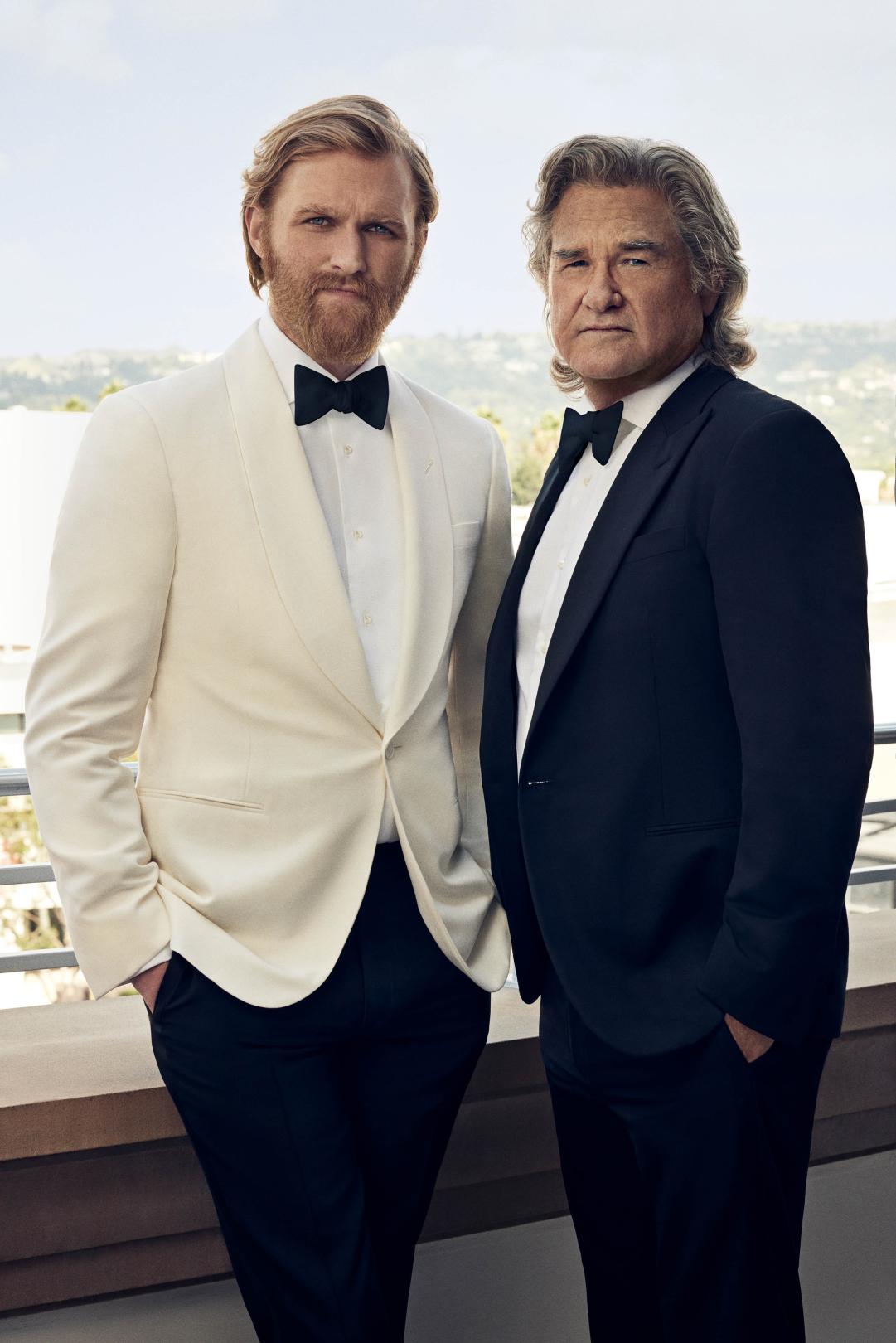

Both of you grew up with fathers as actors but in different generations. What were the distinctions as well as the similarities in having fathers in the industry?
Kurt: The first time I went on set of a film, my dad was working on a western. Obviously the gun was the coolest thing there, and I got a wooden gun from the prop guy. Fairly shortly after that I saw these guys having a blast and thought, If they are having fun doing this and they are getting paid to do it, I’m over here — I can do that.
Wyatt: So you felt you wanted to be an actor from when you went on set, and that made you want to act?
Kurt: No, I wanted the money, I wanted those things.
Wyatt: Our relationships with our fathers are very different. I had access in a different way that you did, and I looked at it through a different lens. What I took away from being on set with you wasn’t so much, This is so much fun, and this is so great and you make money, I took away that you have to work really hard to make it work, and it was very stressful. I remember coming home with you after the day was over, and you put me to sleep on that — it was like a Days Inn, you put me to sleep on the fold-out couch and you went and sat at this round table in the kitchen and would write and smoke till late in the morning, then go to bed. This is something I have now done in my own way, but it was nice to see.
Kurt: There are so many stories. I remember when you were a little boy, we were doing a scene where we were getting electrified. You were looking around, like, ‘Woah, what is happening?’, and you were taken out. Our lives were similar in this regard: your father and you, and my father and me, were never concentrating on the acting world, we were concentrating on our other worlds, which in the case of me and my father was baseball, and you and your father was ice hockey.
Wyatt: By far and away the similarities in acting ability of anybody in our families came from sports. The core reality of who you are and what you bring to a movie was shaped long before anyone ever stepped foot on a movie set.
Kurt: Don’t you think [our experience with sports] was a little like learning about the world in a gladiatorial sense? I mean, it was cut and dry: you either survived or you failed. There is no competition in our [acting] industry, it is collaboration. It’s not 20,000 people screaming at you to succeed, where if you fail you know about it immediately. You learn about life that way.
Wyatt: We never talked about acting. With big Pa, Bing [Russell], sports was way more endlessly fascinating to talk about, because you talk about things that haven’t happened, and you don’t know the outcome.
Kurt: The circus at home was always greater than the circus at work.
We all inherit similarities from our fathers, but from an acting perspective, how do you think your approaches to character vary?
Wyatt: I don’t think very much, as I am too much of a carbon copy when it comes to how you create something and do it well. People would come home and do your meetings about the film, and all I ever heard you talk about is the ‘story’. He has never put himself in front of a movie because the best way to make a movie is to be the best you can be for the movie and make the best movie it can possibly be.
Kurt: You have to perform when the light goes on, though.
Wyatt: I just don’t know if we are that different when it comes to preparation. It’s not like my dad taught me how to prep, but I just thought that clearly it is a good way to do it, so just do it that way, it worked for him.
Kurt: What do you draw from that to make a character?
Wyatt: I go to what is 100 per cent of the character that is ‘out there’ — wacky, completely not you, experience that 100 per cent then pare it back to five per cent, so it will be you but just five per cent of what is 100 per cent of that character. If you can’t do that, which I have experience of, you feel a little lost. What do you do?
Kurt: We’ve never talked about this before. It has to be real, it has to be conversational, but the third thing that comes into it is the director. You have to make your thoughts work for where that train is going. That is what trust is for. To go back to a sports analogy, I remember your [ice hockey] goaltending coach up in Vancouver said, "If you earn your good game, it releases everybody else on your team to play their game and not worry about you”. It is the same in our business.
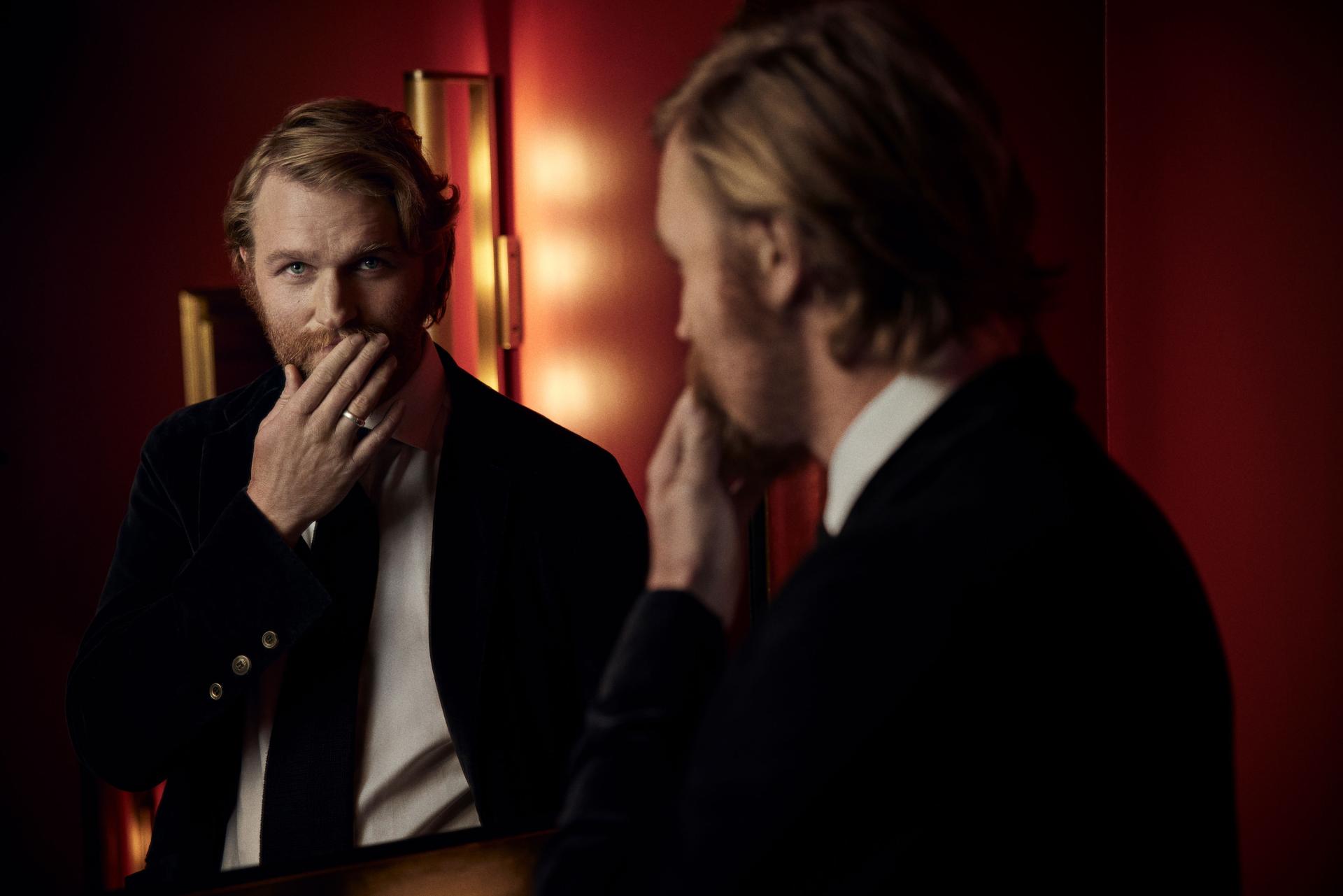

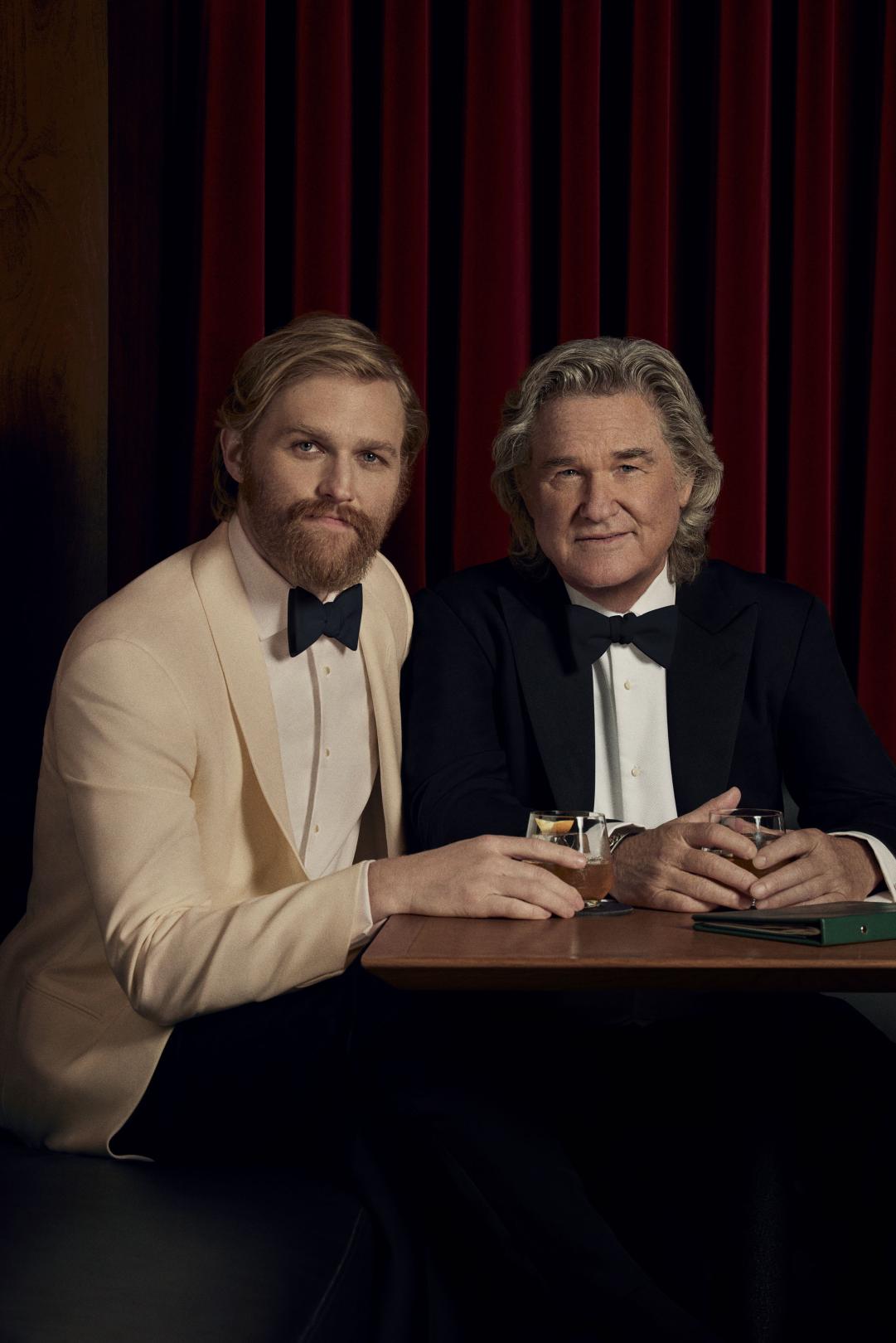

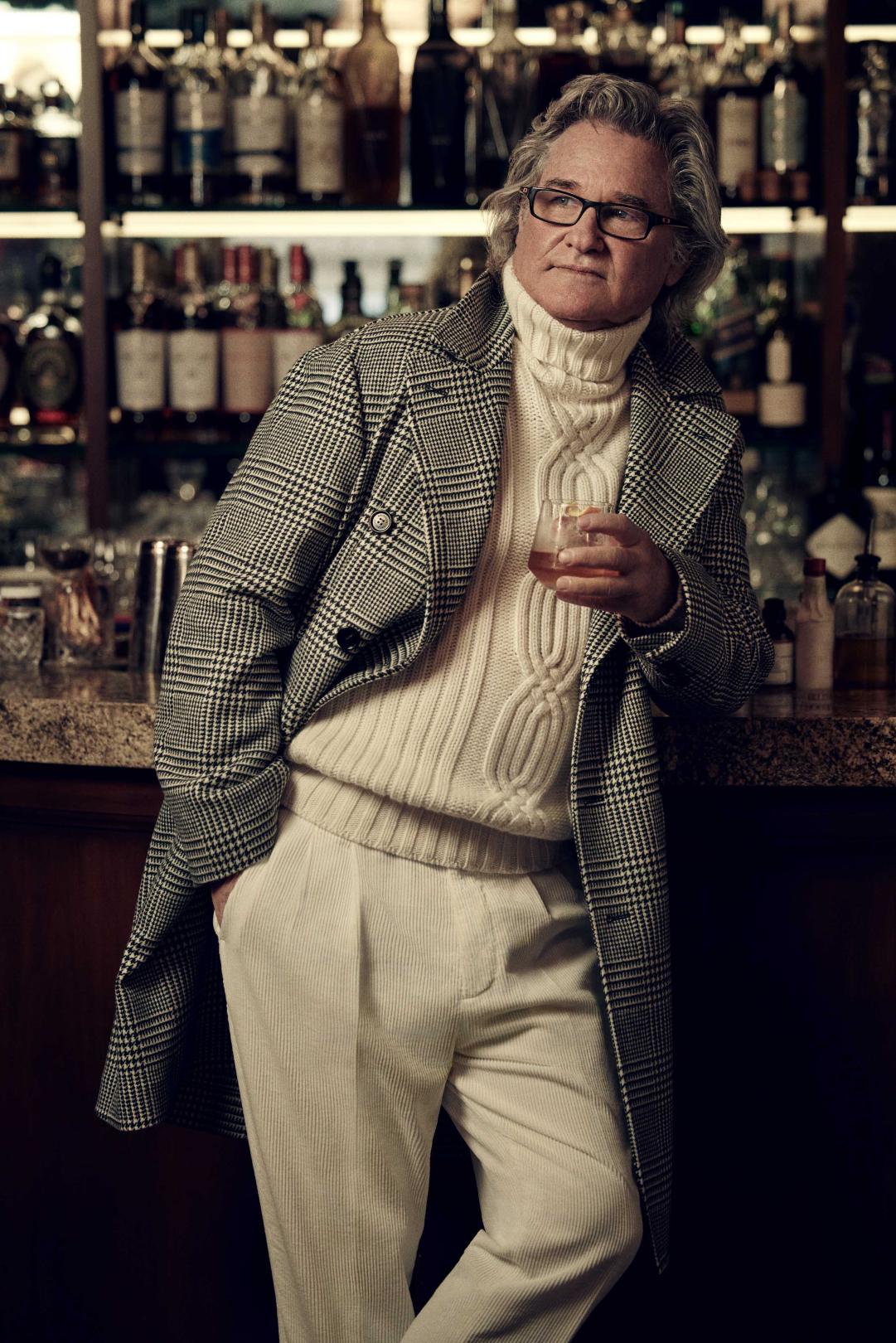

What are the challenges that Kurt faced as an actor when he was Wyatt’s age, and what are the challenges that most affect Wyatt today?
Kurt: The challenges for an actor, I think, remain the same: you want to work with great material, a great director, and a studio that is going to promote it properly. It is hard to put those things together.
Wyatt: I would say that archetypes were easily defined a long time ago, and now they are more difficult to define. You wonder, Who am I in this world? Is there a market for action heroes, is that something people want to see? I think there are roles that would be great to play or fun to play but at the moment are archetypes that we are not looking for. There are no more fucking movies being made. It is hard to get a movie made.
Kurt: We are an entertainment business; it’s not food, it’s not shelter, not cars, it’s entertainment. If the audience out there is not given entertainment as a steady diet or is not habitual to them, you see what happens to that habit. The business has to work its way back into the hearts and minds of people. We used to be in a business where most of the people in the business were people who loved to make movies... producers, studios. This is not a criticism, this is just a pointing out of reality: marketing runs the show now. Whatever it is you want to do, if the marketing department can’t immediately know how to sell that, then you’re on an uphill battle. You think they’d know how to market On the Waterfront now? Forget it. You can’t just make art for art’s sake all the time, otherwise you’ll be out of business, it just doesn’t work that way. You make bad rings, nobody buys them, you make bad watches, nobody buys them.
Wyatt: If they let the numbers be released, you’d give people more of an impetus to see what worked, and you have more of an idea of what direction to go. One of the things that Sag [SAG-AFTRA, the Screen Actors’ Guild and American Federation of Television and Radio Artists] is fighting for [in its industrial action] is to say, Let us know how it does. Like, there were 50 ‘painkiller’ movies [about the pharmaceutical industry] that came out last year, and everyone is after the next true-crime thing...
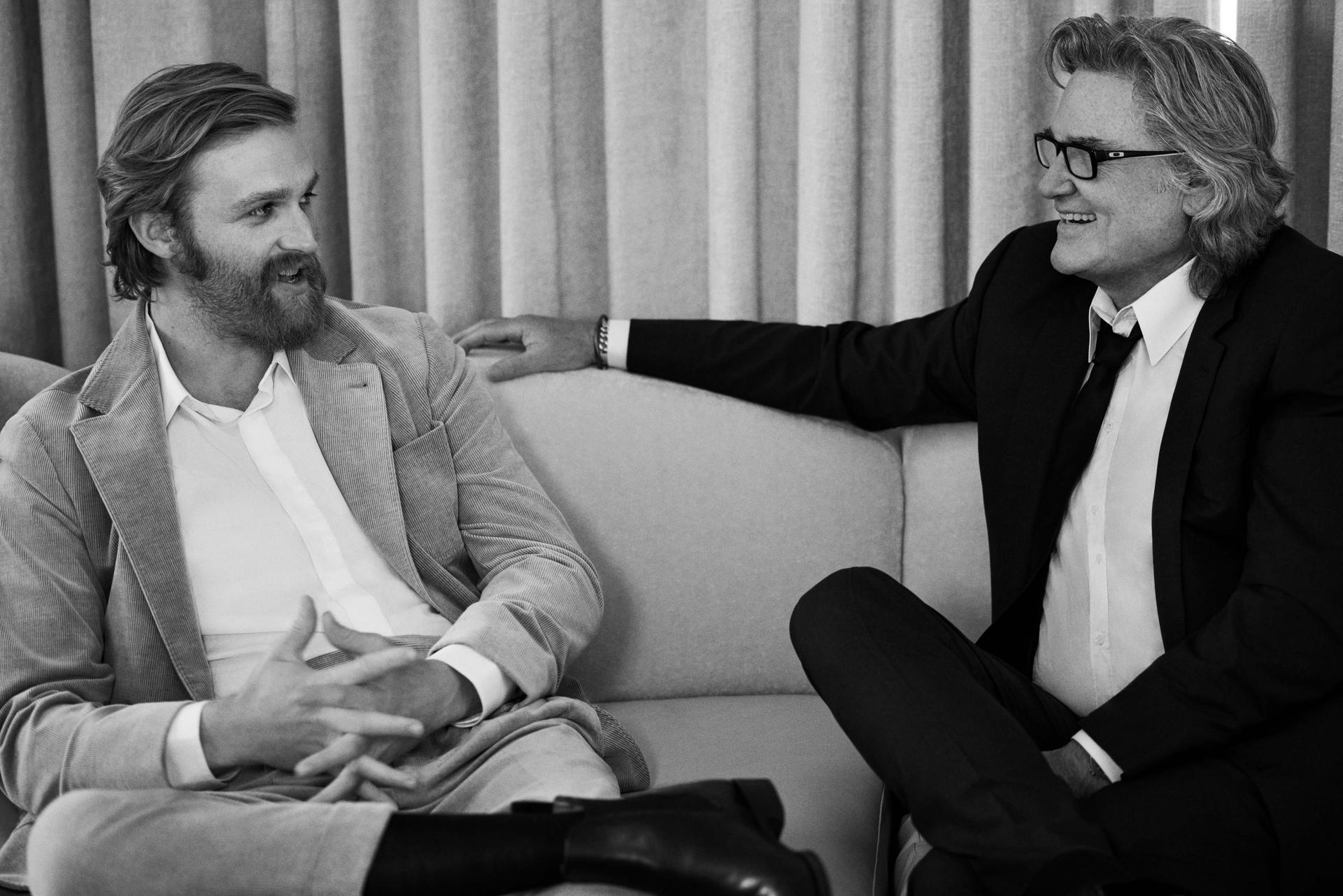

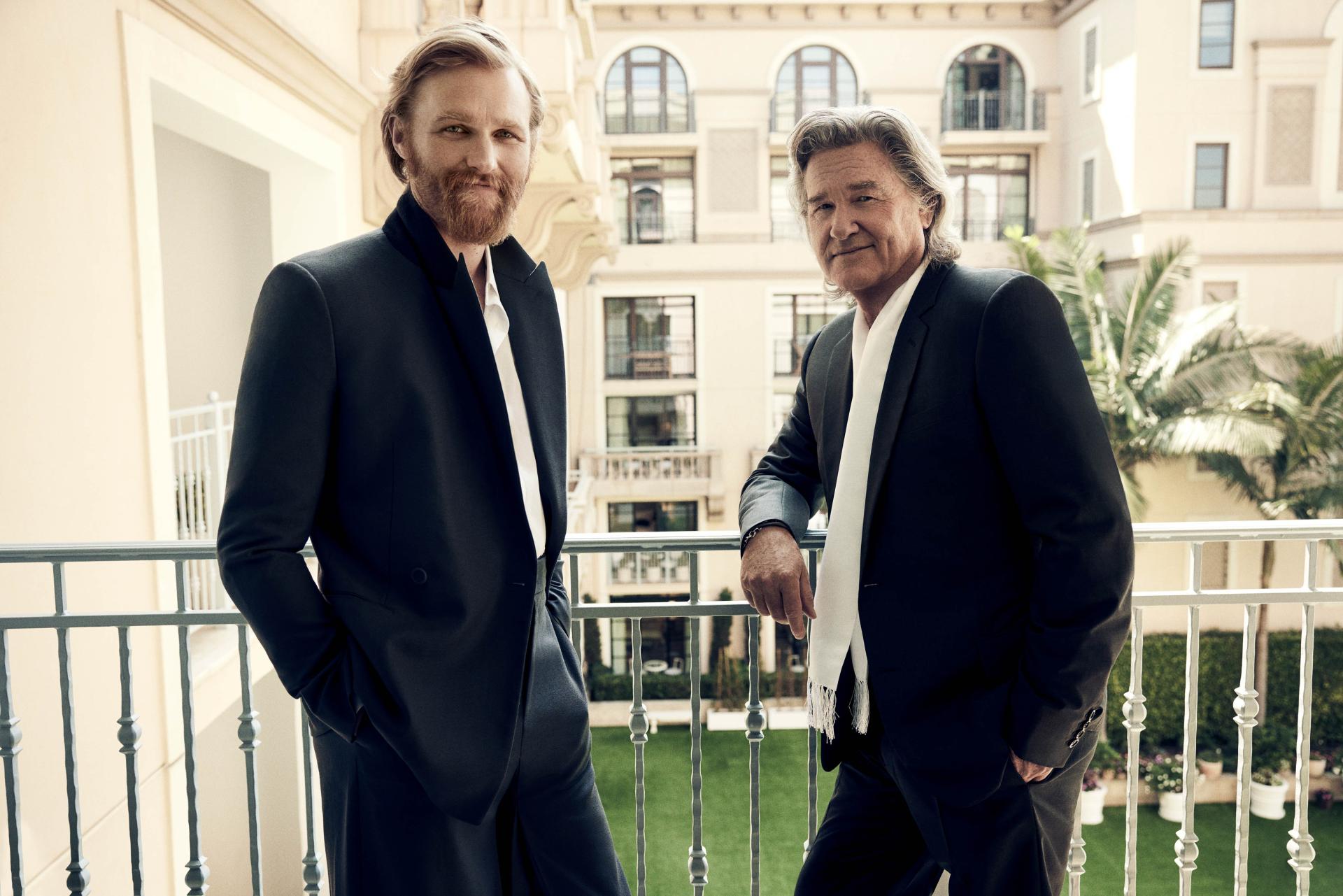



Kurt wears a black wool tuxedo jacket, black wool evening trousers, white piqué evening shirt, and bow-tie, all Ralph Lauren Purple Label; patent evening shoes, Scarosso. Wyatt wears an ivory wool tuxedo jacket, black wool evening trousers, white piqué evening shirt, and bow-tie, all Ralph Lauren Purple Label.
Read the full interview in Issue 90, available now.
Stylist's Assistant: Cameron Greene
Wyatt's Groomer: Molly Greenwald at A-Frame
Kurt's Groomer: Dennis Liddiard
Production: Camp Productions







